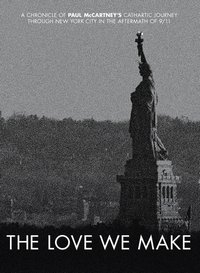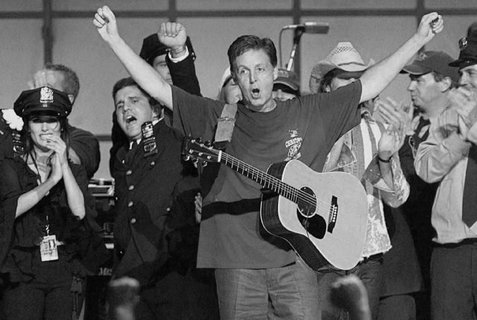The Light from the TV Shows: A Chat with Joe Berlinger (“The ‘Paradise Lost’ Trilogy”)
I can still remember the first time I watched “Paradise Lost: The Child Murders at Robin Hood Hills,” about the so-called West Memphis Three, a trio of teenagers – Jason Baldwin, Damien Echols, and Jessie Misskelley – who in 1993 were accused of the murder and sexual mutilation of three prepubescent boys in West Memphis, Arkansas. Maybe Baldwin, Echols, and Misskelley weren’t the most clean-cut teens imaginable, but watching the sad but undeniably enthralling “Paradise Lost,” it’s pretty easy to believe that their imprisonment was unjust, a case of the justice system gone horribly wrong.
Indeed, I was sufficiently affected by it that I continued to keep tabs on the case over the years, right up through when Baldwin, Echols, and Misskelley were finally released after almost 20 years behind bars. Similarly, directors Joe Berlinger and Bruce Sinofsky, the gentlemen behind the camera for “Paradise Lost,” continued to follow the saga of the West Memphis Three, resulting in two sequels, “Paradise Lost 2: Revelations” and “Paradise Lost 3: Purgatory.”
The whole trilogy has just been released in a four-disc set – one for each film, plus an extra disc of bonus material – and upon receiving a review copy, I was pitched an interview with Berlinger. At first, I hesitated, thinking, “Geez, do I have any place to run this?” Then I realized, “Hello, technicality: all three films made their debut on HBO, so I’m calling in a loophole and putting this baby in ‘The Light from the TV Shows’!” The next thing you know, I’m on the phone with Mr. Berlinger, having the chat that sits before you now. Read on…
Bullz-Eye: I should probably start by telling you that I’ve just spent a fair amount of the preceding 24 hours plowing through the new “Paradise Lost Trilogy” set.
Joe Berlinger: Oh, my God. Watching it in one fell swoop…
BE: Yeah, I said on Facebook, “This is a whole lot of depressing footage to watch and know that you’re only going to get a semi-happy ending in the end.”
JB: Yeah, I know. Imagine me living it! [Laughs.] At least I spread it out over two decades. But to pile it all on like that…I’m actually curious: how does it feel watching one after another? Does it feel repetitive?
BE: No, it doesn’t. [Hesitates.] Well, okay, there are moments, I guess. But they’re acceptable knowing the fact that each one was made several years after the next.
JB: Okay, so it holds up as a trilogy, watching one after another?
BE: I’d say so.
JB: Cool!
You can follow us on Twitter and Facebook for content updates. Also, sign up for our email list for weekly updates and check us out on Google+ as well.
Posted in: Entertainment, Interviews, Movies, News, Television
Tags: Albert Maysles, Brother's Keeper, Bruce Sinofsky, cinema verite, D.A. Pennebaker, Damien Echols, David Maysles, Gimme Shelter, Grey Gardens, HBO, Jamie Bulger, Jason Baldwin, Jessie Misskelley, Joe Beringer, Maysles Brothers, Metallica, Outrageous Taxi Stories, Paradise Lost, Paradise Lost 2: Revelations, Paradise Lost 3: Purgatory, Paradise Lost: The Child Murders of Robin Hood Hills, Richard Leacock, Salesman, Sheila Nevins, Some Kind of Monster, The Light from the TV Shows, The Paradise Lost Trilogy, West Memphis 3, West Memphis Three, Will Harris, WM3












